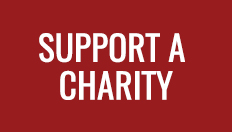The closing is coming in to view. The inspection process is finished and the appraisal came in good, for instance.
There are a few things that you need to know as you come in for a landing.
If you want to see the previous installment in this series, see Part 8 at this link.
Part 9: The Closing
As the days tick down before your Close of Escrow (COE), you are going to focus on a couple things: the final walk-through and reviewing your settlement statement for your closing meeting.

The purpose of the final walk-through is to make certain that the property is in the same condition for close as it was when you made an offer.
If the seller is doing repairs, then we need to make certain they were completed. We can hold up the close if they were not.
We will do a final walk-through together and we will look for these things.
This is also a good time to call the utility companies and move them over to your name. Don’t forget this! It is a pain in the hind quarters to have to sit around waiting for the natural gas guy “anywhere in a window between 9:15 am and 7:45 pm” because you forgot to call ahead to simply switch the name on the account.
Assuming the final walk-through looks good, we will review the settlement statement with you.
A settlement statement an accounting by the title and escrow company of who owes whom what. So, for instance the seller is credited for the price of the home and you are debited for that price (via a loan, of course).
You are credited for the earnest money that you sent in at the beginning of the process. You may be credited for seller-paid closing costs, if there were any.
You will also see:
- Loan origination charges (what you pay your lender to get started)
- Any other lender fees that may exist.
- The down payment
- Payments in to the escrow account, to get you started paying for taxes and insurance every year.
- If you are buying in to an HOA, you will see fees for that and up-front dues.
At the bottom of the settlement statement will be the amount you will bring to closing. Unlike the earnest money check, this check must be a cashier’s check, or you can wire it a day or two before.
So, to wrap it all up, you meet at the title company. One of us is almost always there to answer questions.
Get ready to sign two tall stacks of documents: one for title and one for your loan. Expect between one and one and a half hours to complete it all.
With all of that complete, the title company will send notice to the county recorder’s office to let them know that you now own the property. Once we get confirmation back from them that recordation has occurred, we can meet you at the property to give you the keys.
Simple!
Now, get ready to do it in real life.
If you have any questions, please call us at 602-456-9388.









